Camp Howe in Goshen loses 4-H affiliation after UMass drops support
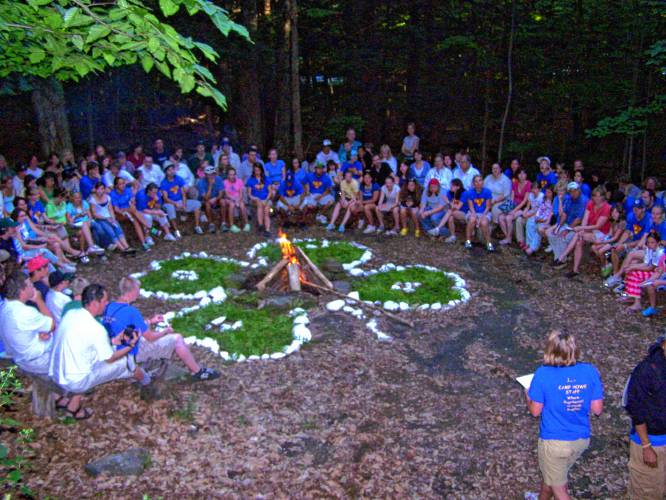
Beginning this summer, Camp Howe and four other 4-H camps in Massachusetts will no longer be affiliated with 4-H and will have to remove the prominent clover emblem that is used throughout the sites. SUBMITTED PHOTO
| Published: 01-21-2024 12:53 PM |
GOSHEN — About to begin its 96th year, Camp Howe is the longest running 4-H summer program in Massachusetts, one of five camps offering a place for youth and young adults to gain life skills as they bunk in rustic cabins, swim, canoe, climb, hike and take care of farm animals.
Beginning this summer, though, Camp Howe, along with Camp Middlesex in Ashby, Camp Marshall in Spencer, Camp Leslie in Georgetown and Camp Farley in Mashpee, will no longer be affiliated with 4-H, and will have to remove the prominent clover emblem that is used throughout the sites. The move is necessary after the University of Massachusetts opted against renewing memorandums of understanding with each of the summer camps.
At Camp Howe, the clover will have to come down throughout the property, including at the boathouse at Lower Highland Lake.
“It’s sad times,” says Camp Howe Executive Director Terrie Campbell, who describes the letter from UMass as an “unexpected decision.” “To close the book on this chapter, after 95 years, is disappointing.”
But Campbell is optimistic that children and families will still appreciate what Camp Howe offers. “From the kids’ experience, I don’t think it’s going to change, and nor will the quality,” Campbell said.
UMass notified the camps and its UMass Extension directors, based in Hadley, Auburn, Barnstable, Plymouth and the Mount Ida campus, in late December that it is withdrawing its support, blaming the decision on a shortage of staffing at UMass Extension and its diminished involvement in the summer camps since the 1990s.
UMass spokesman Edward Blaguszewski said the university understands and honors the longtime 4-H association with the camps, but state 4-H funding was cut significantly when county government was eliminated.
“The difficult decision not to renew memorandums of understanding with the five camps is based on the inability of UMass Extension to be engaged with and support programming at the camps,” Blaguszewski wrote in an email. “The non-renewal means the camps can no longer use the 4-H emblem and name. The university is confident that these independently owned and operated camps will continue to serve youth in the state.”
Article continues after...
Yesterday's Most Read Articles
 More than 130 arrested at pro-Palestinian protest at UMass
More than 130 arrested at pro-Palestinian protest at UMass
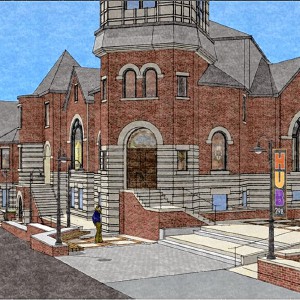 Public gets a look at progress on Northampton Resilience Hub
Public gets a look at progress on Northampton Resilience Hub
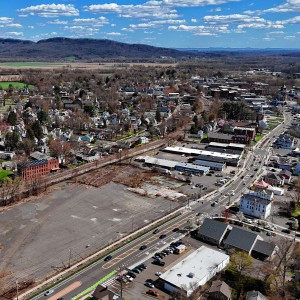 Northampton bans auto dealerships near downtown; zone change won’t affect Volvo operation on King Street
Northampton bans auto dealerships near downtown; zone change won’t affect Volvo operation on King Street
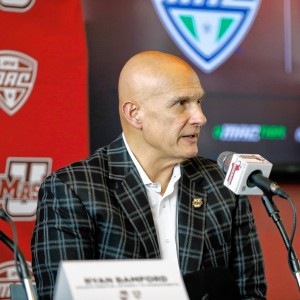 UMass basketball: Bryant forward Daniel Rivera to be Minutemen’s first transfer of the offseason
UMass basketball: Bryant forward Daniel Rivera to be Minutemen’s first transfer of the offseason
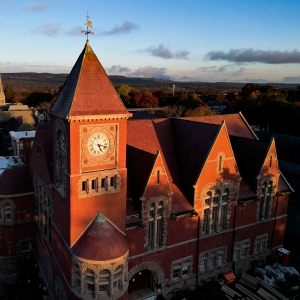 Town manager’s plan shorts Amherst Regional Schools’ budget
Town manager’s plan shorts Amherst Regional Schools’ budget
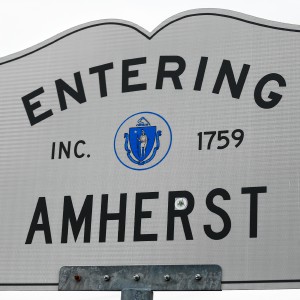 Police respond to alcohol-fueled incidents in Amherst
Police respond to alcohol-fueled incidents in Amherst
He added that there is no federal requirement or expectation that state 4-H programs funded by the U.S. Department of Agriculture should operate, sponsor or support summer camp program.
Aside from the emblems, Campbell said other changes are to be made, including to the morning flag raising, when the 4-H pledge is recited, and to the closing ceremony, when four campers are typically recognized for achieving elements of the 4-H — the head, hearts, hands and health.
“Our greatest loss is tradition,” Campbell said. “While we are deeply saddened to no longer have a 4-H affiliation moving forward, we are excited to take this opportunity to create new traditions for our campers, families and the community at large.”
Based in Goshen since 1935, next to the DAR State Forest, Camp Howe is continuing its programming for youth between the ages of 7 and 17. This year’s schedule of camps, from late June to mid-August, includes one-week sleepaways, one-week day-camp sessions and two-week sleepaways and counselors-in-training programs.
Around 650 children will take part each week, with 50 to 60 staff on site and cultural exchange continuing, with counselors coming from across the globe.
And while a majority of campers come from Massachusetts and the Northeast, others may arrive from states such as Mississippi.
Campbell said after notifying families about the loss of the 4-H connection, the main questions that have been asked are whether the camp will remain in Goshen and whether farm animals, like sheep and jersey calves, would still be present.
In response, Campbell said she has assured families that Goshen will remain Camp Howe’s home, as the property is owned by Camp Howe, Inc. The camp’s creator, William F. Howe, brought it to Goshen on behalf of Hampshire County 4-H after it was based at sites near where the Quabbin now is in the 1920s.
Farm animals, too, will remain.
“Our farm animals are a part of Camp Howe that many campers look forward to, and we will continue to provide an educational agriculture program,” Campbell said.
Massachusetts 4-H has been part of UMass Extension for many years. Outside of the camps, the 4-H Youth Development Program offers projects, activities and programs where young people can explore, learn and grow, taking part in robotics, consumer science, career exploration, community service, photography and animal science projects. Blaguszewski said those will continue.
All five Massachusetts camps were sent a similar letter from Lynne McLandsborough, interim director for the Center for Agriculture, Food and the Environment.
“We understand and honor the long-time association between the Massachusetts 4-H Program and camps,” McLandsborough wrote. “However, we have determined that our capacity to collaborate with and support the camps has diminished significantly, and we lack dedicated staff who can collaborate directly with camps.”
Camp Howe notified families through social media and other means.
“Moving forward, we are excited to take this opportunity to create new traditions that better serve our campers, families, and the community at large. We are committed to providing a safe, fun and educational environment for all campers and will continue delivering a high-quality camp experience.”
The other camps have done similar communication.
According to information from the national 4-H, based in Washington, D.C., Massachusetts had been one of 17 states offering 4-H summer camps, with others in the northeast including Connecticut, New York and Pennsylvania.
Scott Merzbach can be reached at smerzbach@gazettenet.com.

 Valley lawmakers seek shorter license for FirstLight hydropower projects
Valley lawmakers seek shorter license for FirstLight hydropower projects State Senate budget funds free community college for all
State Senate budget funds free community college for all ‘We can just be who we are’: Thousands show support for LGBTQ community at Hampshire Pride
‘We can just be who we are’: Thousands show support for LGBTQ community at Hampshire Pride Doors open at Tilton Library’s temporary home at South Deerfield Congregational Church
Doors open at Tilton Library’s temporary home at South Deerfield Congregational Church
